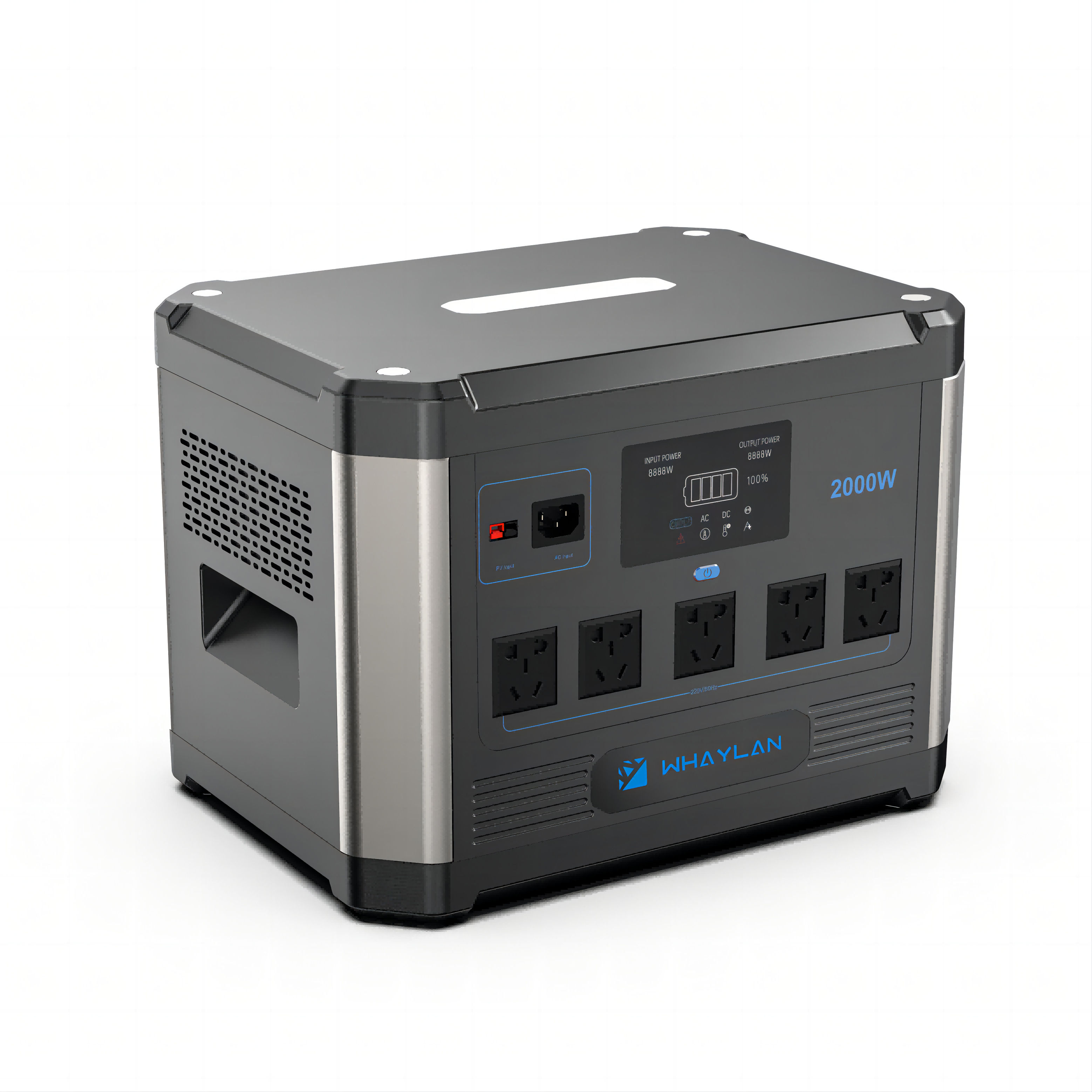
Whaylan 2000w portabel power station. Completely say goodbye to the anxiety of outdoor electricity and devote yourself to an outdoor activity. At the same time, it can be equipped with solar panels to charge the power supply. The energy storage technology of lithium battery is combined with the clean renewable energy of solar energy to truly realize the enjoyment from day to night.
Suzhou Whaylan new energy technology co., Ltd. is located in Suzhou Wuzhong Economic Development zone. It is a new energy conversion electric power equipment, energy storage transformation, energy management, on the basis of independent research and development, production, sales and after-sales service in the integration of high-tech enterprises, business scope covers from grid photovoltaic inverter, energy storage system, off-grid power generation systems and other fields.
In the context of global energy revolution, Whaylan will continue to focus on new energy equipment business, constantly explore and innovate, constantly close to the needs of users, and strive to build a world-class green technology enterprise, create a new era of smart energy!
2000W power station,Outdoor Portable Power Station,Emergency Power Station
suzhou whaylan new energy technology co., ltd , https://www.xinlingvideo.com